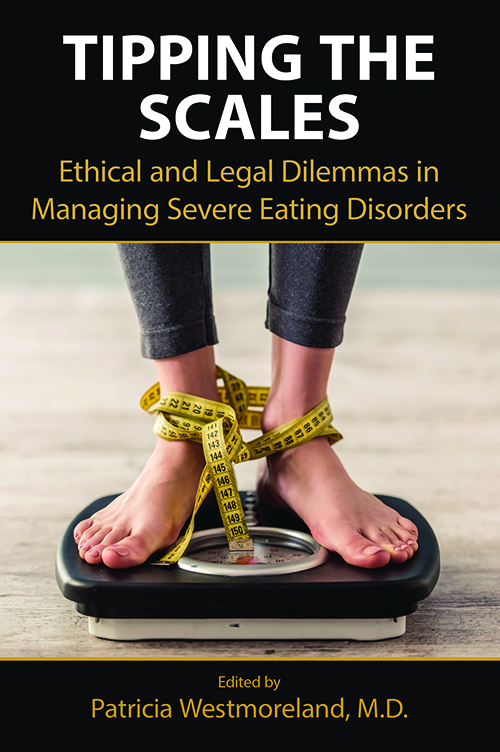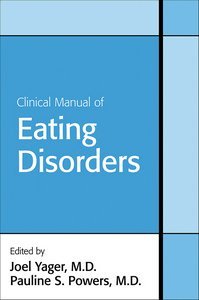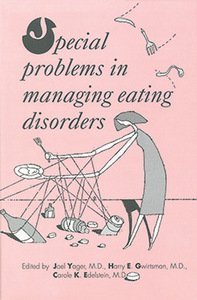Tipping the Scales
Ethical and Legal Dilemmas in Managing Severe Eating Disorders
View Pricing
Description
Tipping the Scales: Ethical and Legal Dilemmas in Managing Severe Eating Disorders centers on the complex and at times wrenching medicolegal and ethical challenges encountered in treating patients with severe and enduring eating disorders (SEEDs). Unlike other mental health disorders, for which the care of a medical physician is typically unnecessary, patients with eating disorders have many significant medical complications that demand careful oversight by a physician knowledgeable in treating these disorders. The tragic dearth of such expertise is made more alarming by the fact that anorexia nervosa has the highest mortality rate of any mental disorder aside from opioid abuse. Accordingly, the book addresses the medical consequences of SEEDs and explores that subgroup of patients whose illness appears intractable—people who are no longer seeking a cure but, rather, enough improvement to afford them a reasonable quality of life. For such patients, depending on their age, treatment history, and support system, treatment teams may either commit to achieving a full recovery or engage in a harm reduction model.
In empathic, accessible prose, the book
Tipping the Scales assists physicians, mental health professionals, and patients in making decisions that are in the patient's best interests, whether they lead to healing and recovery or a dignified passage within the bounds of our current knowledge and the ethics of palliative end-of life care.
Contents
- Introduction
- Chapter 1. Treatment of Eating Disorders: A Historical Perspective
- Chapter 2. Basic Principals of Ethics
- Chapter 3. Coercion In Treatment
- Chapter 4. Capacity
- Chapter 5. Guardianship
- Chapter 6. Civil Commitment
- Chapter 7. Children And Adolescents With Eating Disorders
- Chapter 8. Novel Treatments For Patients With Severe And Enduring Eating Disorders
- Chapter 9. Harm Reduction
- Chapter 10. Palliative and End Of Life Care
- Chapter 11. Futility
- Chapter 12. Physician Assisted Death & Euthanasia
Contributors
- Arnold Andersen, M.D.
Ovidio Bermudez, M.D., FAAP, FSAHM, FAED, Fiaedp, C.E.D.S.
Leah Brar, M.D.
Wayne Bowers, Ph.D.
Rebecca Weintraub Brendel, M.D., J.D.
Isis Elzakkers, M.D., Ph.D.
Libby Erickson, D.O.
Cynthia M.A. Geppert, M.D., M.A., M.P.H., M.B.E., D.P.S., M.S.J,
FACLP, DFAPA, FASAM, HEC-C
Dennis Gibson, M.D.
Angela S. Guarda, M.D.
Annette Hanson, M.D.
Phillipa Hay, M.D.
Jeanne Kerwin, D.M.H., HEC-C
Barbara Kessel, D.O.
Mark Komrad, M.D.
Cushla McKinney, Ph.D., M.B.H.L.
Russell Marx, M.D.
Philip S. Mehler, M.D.
Anne-Marie O'Melia, M.D.
Kaila Rudolph, M.D., M.P.H., M.B.E.
Colleen C. Schreyer, Ph.D.
Michael Spaulding-Barclay, M.D., M.S.
Michael Stafford, J.D.
Stephen Touyz, Ph.D.
Elizabeth Wassenaar, M.D.
Ken Weiner, M.D.
Patricia Westmoreland, M.D.
Joel Yager, M.D.
About the Authors
Patricia Westmoreland, M.D., is an adult, consultation-liaison, and forensic psychiatrist whose clinical practice focuses on women's mental health. As part of her forensic practice, she is a consultant at the ACUTE Center for Eating Disorders at Denver Health and adjunct faculty at the University of Colorado in Denver.
Related Products
Carousel Control - items will scroll by tabbing through them, otherwise arrows can be used to scroll one item at a time








